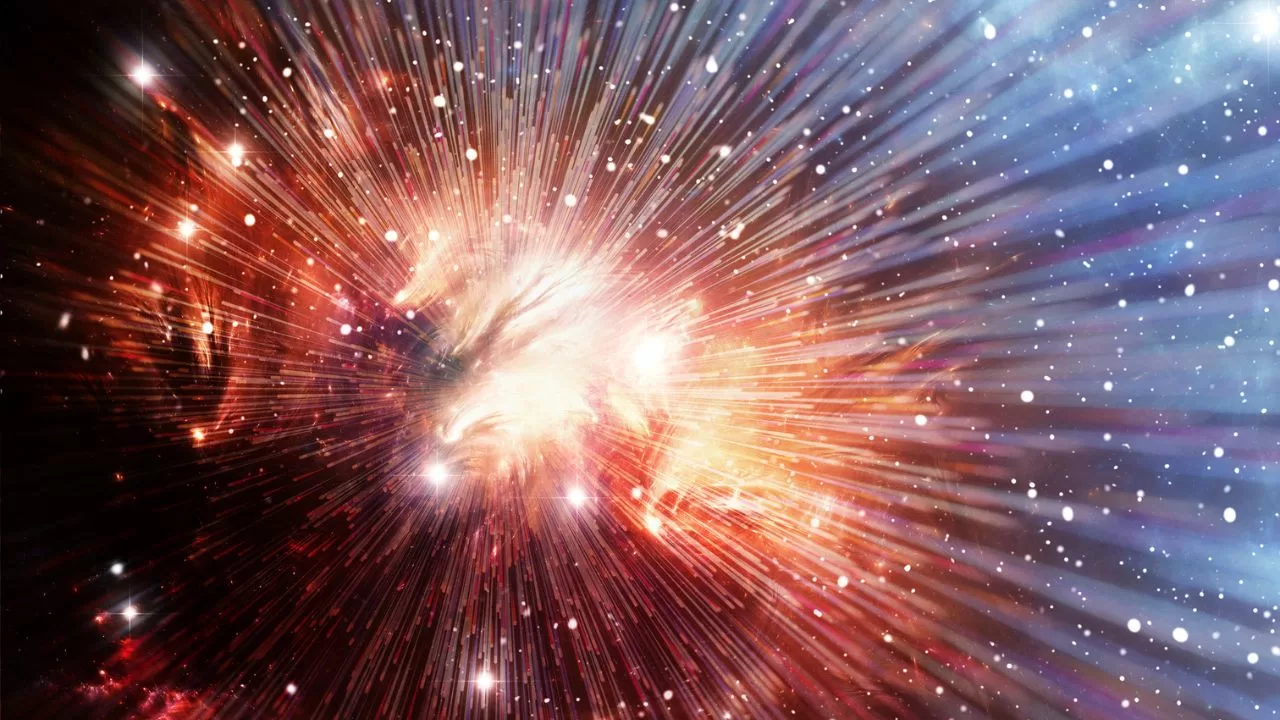In a quaint cafe on a rainy evening, two friends, Leah, an astrophysicist, and Alex, a curious teacher, sat across from each other, steaming cups in hand. As the rain pattered against the windows, Alex leaned forward and whispered, “Leah, tell me, what really is the Big Bang Theory?”
Leah, always eager to share her passion, smiled and began her tale.
“Well, Alex,” she started, “Imagine everything that is, was, and ever will be, all compressed into an infinitely small point, and then – BANG! An explosion of incomprehensible magnitude, giving birth to our universe.”
Alex, wide-eyed, sipped his coffee, “But that leads me to so many questions!”
And so began a night of cosmic inquiries.
1. What exactly was the ‘Bang’ in the Big Bang?
Leah responded, “It’s a common misconception. The Big Bang wasn’t an explosion in the typical sense. Instead, it was a rapid expansion of space itself. Think of it as inflating a balloon, where every point on the balloon’s surface moves away from every other point.”
2. Was there anything before the Big Bang?
Leah paused, “That’s one of the great mysteries. Current theories suggest time itself began with the Big Bang. So, to ask what was ‘before’ is a bit like asking what’s north of the North Pole.”
3. How do we know the Big Bang actually happened?
“With evidence,” Leah replied. “The most compelling is the Cosmic Microwave Background Radiation. It’s like the afterglow of the Big Bang, a snapshot of the universe when it was just 380,000 years old, detected everywhere in space.”
4. How old is the universe?
Based on the Big Bang Theory, Leah explained, “The universe is approximately 13.8 billion years old. We’ve calculated this using the rate at which the universe is expanding.”
5. If the universe is expanding, what’s it expanding into?
Leah chuckled, “A mind-bender, isn’t it? When we say the universe is expanding, we mean that space itself is stretching. It’s not expanding ‘into’ anything outside of itself.”
6. Does the Big Bang Theory explain the creation of life?
“No,” Leah clarified, “The Big Bang describes the origin of the universe, not life. The origins of life, well, that’s a different story altogether.”
7. Will the universe keep expanding forever?
Leah’s face turned contemplative, “There are a few scenarios. It could expand forever, eventually causing galaxies, stars, and even atoms to tear apart. Or, gravity might reverse the expansion, leading to a ‘Big Crunch’.”
8. Are there other universes out there?
“The concept of multiple universes or a ‘multiverse’ is still theoretical,” Leah mused. “While it’s a fascinating idea that there could be parallel universes, as of now, it remains in the realm of speculation.”
9. How did the galaxies, stars, and planets form after the Big Bang?
“After the initial expansion,” Leah began, “the universe was a hot soup of particles. As it cooled, these particles grouped together, forming stars, galaxies, and eventually, planets.”
10. How does the discovery of dark matter and dark energy relate to the Big Bang?
Leah’s eyes sparkled, “Oh, that’s the frontier of cosmology! While they don’t directly explain the Big Bang, both dark matter and dark energy play crucial roles in the universe’s structure and its rate of expansion.”
As the night deepened, and their cups emptied, the cafe around them seemed to disappear, replaced by the vastness of the cosmos. Alex felt as though he’d traveled through time, from the universe’s fiery birth to its mysterious future.
With a satisfied sigh, he said, “Leah, our universe is both baffling and beautiful.”
Leah nodded, “It is, Alex. And every answer just leads to more questions, and that’s the beauty of science.”
And so, under the canopy of a rain-drenched night, two friends marveled at the mysteries of the cosmos, reminded once again of the wonders that await when curiosity meets knowledge.










0 Comments